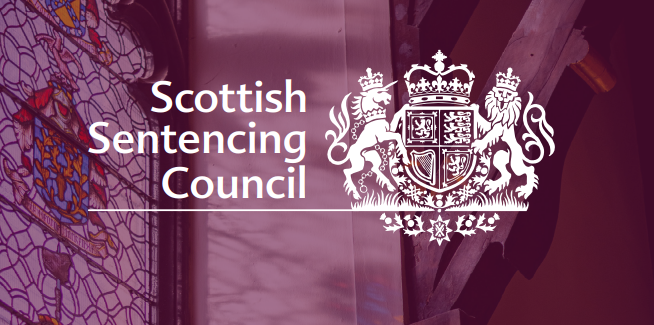Conference marks 10-year anniversary of the Scottish Sentencing Council

The Scottish Sentencing Council has hosted a conference to mark its 10-year anniversary, with the event featuring speakers and guests from across the justice sector.
Chaired by Lord Beckett, Lord Justice Clerk and Chair of the Council, around 100 guests attended the event at the Royal College of Surgeons in Edinburgh on 10 November.
The conference reflected on the achievements of the Council over the last decade – including the creation of sentencing guidelines and numerous research projects and engagement events – while also exploring current issues in sentencing.
It also looked to the future of the Council, with announcements being made on new projects including work with the judiciary more widely to promote open justice, and research undertaken at the request of the Scottish Government looking at the operation of the presumption against short sentences (PASS) in practice.
Speakers at the event included the Lord Justice General, Lord Pentland, the Lord Advocate, Dorothy Bain KC, and Rachel Ormston, research director at Ipsos Scotland.
During his speech, the Lord Justice General highlighted the importance of open justice and commended the Council on its public education work designed to support understanding of the sentencing process.
His Lordship invited the Council to build on this by adding its support to open justice work by considering how best to ensure that sentencing in proceedings is open, transparent and understood.
His Lordship said: “Over the last 10 years, [the Council] has been working to aid public understanding of sentencing in Scotland and has produced a wealth of useful and impressive resources on its website and social media platforms. The benefits of that work, particularly that undertaken with schools, further and higher education establishments, will, I hope, be seen for years to come.
“Recognising that contribution to public education, I would like to take this opportunity to invite the Council to build on those achievements by joining with us in the open justice work being undertaken. I would ask the Council to consider what more can be done across the criminal justice system in furtherance of openness, understanding and public confidence in sentencing.”
The Lord Justice Clerk also spoke at the event, focussing on the Council’s accomplishments over the last 10 years and the work it does to assist public discourse on criminal justice issues in Scotland.
Lord Beckett said: “Until this year, I was no more than a consumer of the Council’s work, considering and applying guidelines when sentencing, and an occasional contributor in interviews, consultation responses and conferences.
“Sitting now on the other side of the table and engaging in the rigorous processes of debate and consideration by which guidelines are developed has been eye opening. There is a great deal of discussion and reflection going on, drawing on the varied experience and insights of our staff and members in making difficult but important decisions on guideline content. I had no idea of quite how much research and educational activity the Council undertakes and have been greatly impressed by the knowledge, rigour and creativity that goes into it.”
He added: “It is clear from all the work I have described that the Council, with its functions to assist the courts, policymakers, and the public, holds a unique position within the criminal justice system.
“It is imperative that the Council exercises these functions independently and impartially, and - in line with the principle of open justice - that it is seen to do so.”
His Lordship also paid tribute to Council members for their commitment and generosity in assisting the Council, and thanked others who have assisted the Council’s work over the years.
He finished by saying: “Perhaps the deepest gratitude the Council owes is to those who have contributed to its work by way of submitting their views to our public consultations, engaging with us at various conferences and events, and by participating in our research. Particular thanks must be extended to all those with experience of crime for their willingness to share that experience with us. I cannot emphasise enough how appreciative the Council is of their contributions.”
The conference included a number of discussion sessions, with participants including: Sarah Angus, Director of Policy, Scottish Prison Service; Natalie Beal, Divisional Head of Operational Support at Scottish Prison Service; Lynsey Smith, Head of Service - Justice Services, Glasgow and Co-Chair of the Justice Standing Committee of Social Work Scotland; and John Watt, Chair, Parole Board for Scotland.
A full report on the event and the discussions which took place will be published at a later date.

